|
Attorney General Merrick Garland this week formalized a policy he announced early in his tenure that restricts the use of legal tools by federal prosecutors to force journalists to divulge their notes and sources.
This new rule precludes “the use of compulsory legal process, including subpoenas, search warrants, and certain court orders for the purpose of obtaining information from or records of members of the news media.” Such protections are sorely needed. We’ve seen federal intrusion into the records of the AP, CNN, The Washington Post, The New York Times, and even morning raids to confiscate the phones of activist journalists. Over the years, journalists have been held in contempt and jailed for refusing to reveal their confidential news sources. Most U.S. states have “press shield” laws that protect journalists’ sources and notes, with reasonable exceptions. But the federal government has no such law. It is heartening to see the Attorney General make this directive a formal rule. We should remember, however, that Department of Justice rules can change with the next Attorney General and the next administration — or even if the current Attorney General changes his mind. We value the ability of journalists to shield confidential sources because so many times revelations from whistleblowers have revealed wrongdoing or dysfunction that the American people need to know about. Recognition of a shield law as essential to freedom of the press explains why Reps. Jerry Nadler and Jim Jordan, Chair and Ranking respectively of the House Judiciary Committee, led a bipartisan group to vocally support the Protect Reporters from Exploitive State Spying (PRESS) Act, introduced by Sen. Ron Wyden (D-OR) and Rep. Jamie Raskin (D-MD). The PRESS Act passed the House with unanimous support in September. Attorney General Garland deserves our gratitude for pushing this issue forward and underscoring its importance. All that’s left is for the Senate to seal the deal and join the House in sending the PRESS Act to the president’s desk for signature. “Why Elon Musk’s Idea of ‘Free Speech’ Will Help Ruin America,” reads a headline in the liberal The New Republic. Bottom line – the sale of Twitter to Elon Musk “means that lies and disinformation will overwhelm the truth and the fascists will take over.” “Stop the Twitterverse – I Want to Get Off,” writes Debra Saunders in the conservative American Spectator a few weeks before Elon Musk’s acquisition of Twitter became inevitable. From left and right, cynicism is the dominant reaction to the potential of Twitter under Elon Musk’s direction. The left hates Twitter because it can be abused by noxious personalities with extreme politics. The right hates Twitter because of a perception among conservatives that Twitter takes out the magnifying glass only when evaluating conservative speech. Both sides have become so used to distortion and the failure of public enterprises and personalities that they have come to welcome it. We’ve even started to root for failure. There is an emotional comfort to always assuming the worst will happen – you will never be disappointed. E.K. Hornbeck, the journalist character in Inherit the Wind, captured the mentality of our times in a play written by Jerome Lawrence half-a-century before the emergence of social media: “Cynical? That's my fascination. Social media has elevated Hornbeckism and taught us not just expect the worst, but to celebrate it. We should pause, then, to take note that on the day Elon Musk visited the headquarters of Twitter as he assumes ownership, the billionaire released a surprisingly sweet note to advertisers about the direction the platform will take.
Musk wrote that he bought Twitter “because it is important to the future of civilization to have a common digital town square, where a wide range of beliefs can be debated in a healthy manner, without resorting to violence. There is currently great danger that social media will splinter into far-right wing and far-left wing echo chambers that generate more hate and divide our society.” He wrote that the “relentless pursuit of clicks” of traditional and social media fuels caters to polarized extremes. Musk admits that failure is real possibility for him and that he must allow some degree of content moderation to keep Twitter from becoming a “free-for-all-hellscape.” Musk and his team face many granular decisions between statements that are edgy and even offensive to many, and those that are over the line. That line will probably waver back and forth as Twitter experiments with a broader array of speech and speakers. Security will also need to be addressed. A fired former senior executive of Twitter, Peiter “Mudge” Zatko, testified before the Senate Judiciary Committee that there are “no locks on the doors” at Twitter when it comes to securing users’ data. Twitter, he said, had been infiltrated by foreign spies, including actors on behalf of the People’s Republic of China, seeking Americans’ personal data. It will be up to Musk to assess and if necessary correct security flaws. He will lead a team that must be capable of executing operations while bringing a more open-minded ethos to the Twitterverse. We can be certain that there will be mistakes, embarrassments, policies made and revoked. But Elon Musk’s rockets exploded on the launchpad before he got SpaceX right. Maybe the same will happen this time. We should all hope so. As Twitter evolves, stumbles, evolves some more, we should remain calm and continue to cheer for the platform’s success. There’s nothing quite like it. And if Twitter fails because we cannot as a nation manage a dialogue, then we will all fail as well. When the founders drafted the First Amendment forbidding the abridgement of freedom of speech, “pamphlet wars” were common, with opposing sides handing out flyers and inviting passersby to listen to their opinions. Even in this age of tweets, most Americans recognize parks, sidewalks, and other public spaces as venues where people are allowed to hand out flyers and politely ask passersby to hear them out.
The federal courts, however, are split on the question of whether this form of expression, as old as colonial America, must be respected today under the First Amendment. Concerned about this encroachment on speech, Protect The 1st petitioned the U.S. Supreme Court to hear a case from a street preacher who was silenced by university officials and police. This happened when evangelist Rodney Keister stood on city-owned sidewalks on a public street in Tuscaloosa, Alabama, near the University of Alabama. By agreement with the city, the UA campus police oversee a portion of the public sidewalk at an intersection near – but not on – the campus. The campus police more than once warned Keister that he could not preach on this public sidewalk. Fearing arrest, the preacher left but filed a lawsuit that was eventually heard by the Eleventh Circuit Court of Appeals. The question as to whether a city-owned public sidewalk is a traditional public forum should be a slam-dunk in favor of free speech. But federal courts are split on the issue. The Ninth, Tenth, and D.C. Circuits stick with the First Amendment analysis in these public forum cases, allowing speech. But other circuits hold that streets open to the public but adjacent to college and university buildings are limited public forums. Speech there can be restricted. In one public forum case, the D.C. Circuit ruled against the government, which attempted to prohibit a demonstrator from holding a sign or distributing leaflets on the grounds of the U.S. Capitol building. While these grounds are obviously under the control of federal authorities, they are parklike and open to the public. Making this distinction, the D.C. court rejected any claim that the grounds were a “special type of enclave” that had to be protected from free expression. That court held that “because of their historical association with the exercise of free speech,” streets, parks and sidewalks are quintessential examples of public forums. The Eleventh Circuit, on the other hand, held that even though the sidewalk in Tuscaloosa was open to the public and owned by the city, the maintenance of that sidewalk by the university necessarily involves the university’s intent toward expressive activity. Protect The 1st asks the Supreme Court to consider if courts can “apply an amorphous and manipulable balancing test that relies on the government’s or its delegee’s intent to restrict speech as a justification for doing so.” We also informed the Court that by “denying ‘public forum’ status to a place that has traditionally been a public forum – sidewalks tied to public streets – the decision below threatens the First Amendment not merely in Tuscaloosa, but throughout the Nation.” In our petition, Protect The 1st tells the Supreme Court that the “use of multifactor balancing tests makes the outcomes in any given case unpredictable and unprincipled. There is a better way. Relying on the text of the First Amendment, read in light of history and tradition, providers a surer approach.” Protect The 1st believes this case not only raises important constitutional questions on which the courts of appeal are divided, but also presents an excellent vehicle for the Supreme Court to resolve them. Protect The 1st welcomes the news that Democratic Pennsylvania gubernatorial candidate Josh Shapiro added a private school choice plan, Lifeline Scholarships, to his education plan. In Illinois, where more than 7,000 students benefit from a state tax-credit scholarship program, Democratic Gov. J.B. Pritzker reversed his opposition to this scholarship program so it will continue to provide financial support for thousands of students to attend private and parochial schools.
Shapiro and Pritzker are not alone. Today, 31 states, Washington, D.C., and Puerto Rico have private school choice programs. Twenty-one states offer tax-credit programs for parents. And 45 states plus Washington, D.C., permit public charter schools. “Governors are responding to the evidence that for millions of children, school choice is a powerful first step on the ladder to success,” said Rick Boucher, former U.S. Representative from Virginia, and Protect The 1st Senior Policy Advisor. “It is in the finest tradition of our party to provide quality education for American children across all zip codes. I am glad to see my fellow Democrats take up the mantle.” Perhaps you’ve never heard of the U.S. Maritime Administration (MARAD), an agency of the U.S. Department of Transportation. You might not be interested in MARAD, but MARAD might be interested in you. Let us hope that MARAD does not have reason to want to put you to death.
Harry Byrd Wilt of The Dispatch (paywalled, but the Cato Institute has a good synopsis) revealed that in March 2020 a committee of the maritime shipping panel reacted to the opposition of two libertarian think tanks, the Cato Institute and the Mercatus Center, to the Jones Act – a 1920 law governing shipping. The Jones Act requires the use of U.S. flagged vessels for the transport of items originating at a U.S. port and bound for another U.S. port. Critics say the law inflates the shipping costs for intrastate traffic. And what did MARAD propose as a response to these criticisms? “Charge all past and present members of the Cato and Mercatus Institutes with treason.” Treason, of course, is punishable by long prison sentences and even death. But why put all past and current members of the Cato Institute and Mercatus Center to death for criticizing the Jones Act when we could, with equal justice, put them to death for their positions on “zoning land use planning” and for writing papers with titles like “Improving the Regulatory Process through Regulatory Budgeting”? On the surface, this is a silly story. But it contains within it a very serious one. One of the long-standing civic norms that has gone by the wayside in recent years is restraint in the use of the word “treason.” Politicians of both parties and of all ideological stripes now freely accuse one of another of being traitors. This is more dangerous than it seems, because in much of the world, loose standards for treason are a way to imprison and sometimes judicially murder critics of the government. From Iran, to China, to Russia, critics of the government are silenced by painting them as acting at the behest of some foreign (usually American) interests. It is discouraging to see the same impulse emerging here. Fortunately, the American Founders were alert to the danger that accusations of treason pose to free speech and the free exchange of ideas. In Article III, Section 3, of the U.S. Constitution, they set a very high bar for convicting an American of treason. Treason consists of a citizen who is guilty of “only in levying War against them [the United States], or in adhering to their Enemies, giving them Aid and Comfort.” Note the use of the word “only.” In addition, the guilty person must either confess or have two witnesses testify against him or her in open court. Furthermore, the Constitution holds that a treasonous person’s guilt cannot be a reason to punish his or her family. The Constitution is our guardrail against transforming rhetoric about treason into prosecutions. But we cannot rely on that document to shape our norms and political culture. Friedrich Hayek, the Nobel-Prize winning economist and for decades a leading light at the Cato Institute said that “to choose one’s government is not necessarily to secure freedom.” So much free talk about treason, both on the left and the right, betrays a growing desire to use force to silence the other side. Eugene Volokh Represents Protect The 1st Eugene Volokh, famed legal scholar and professor of law at UCLA, appeared before the judges of the D.C. Court of Appeals in Mashaud v. Boone. The result (go to 50:50 mark) is 26 minutes of rich discussion about the First Amendment and its limits.
The court’s en banc hearing examines the District of Columbia anti-stalking statute that makes it a crime to (among other things) “directly or indirectly … in person or by any means, on two or more occasions” communicate “about another individual” where the speaker “should have known” that communications would cause “significant mental suffering or distress.” Judge Catherine Friend Easterly noted that this provision could apply to “every high school student in the District of Columbia,” to journalists and even to the court itself, since the court’s opinions often publicize unpleasant facts or allegations, thus causing significant emotional distress. The facts of Mashaud are indeed emotional. A distraught husband learned that his wife, who worked at a firm as an intern, had an affair with a superior. The husband informed the company’s HR department about the extramarital affair, made posts on Facebook, and emailed the superior’s colleagues, family, and friends about it. Volokh, Protect The 1st Senior Legal Advisor, argued that to avoid “overbreadth” and “vagueness” the court should limit the law to speech that fits within First Amendment exceptions long recognized by courts – such as fighting words, obscenity, threats, and fraud. To this he might also add narrow categories of highly sensitive personal information, such as Social Security numbers or where one’s children go to school. Volokh cited Organization for a Better Austin v. Keefe, in which the Supreme Court reversed a lower court ruling on First Amendment grounds. In that case, the Court allowed civil rights activists to distribute leaflets with a realtor’s phone number and urged people to call him to complain about his practices. Given that precedent, how could something as vague and broad as the DC statute stand? Judge Easterly asked Volokh why the court should recognize these exceptions instead of just sending the whole section of that law regarding speech back to the DC council to revise. Volokh, happy to welcome that idea, noted that if the court wasn’t going to void that section of the law, it should at least limit its provisions to these well-established exceptions. Volokh’s section of the oral arguments ends with a fascinating discussion about the enduring strength of the First Amendment despite the fact, Volokh noted, that the amendment is itself vague. Earlier this year, we reported how the Mustangs, the basketball team of the Oakville Academy of Huntsville, Alabama, were denied their chance to compete for the state title by the Alabama High School Athletic Association.
The rub was that they were scheduled to play on a Saturday, which the young men of this Seventh Day Adventist school could not do on their Sabbath. Other teams agreed to switch out their times with other teams, avoiding a problem. But the Alabama High School Athletic Association refused to approve the switch. Our take at the time was that the treatment of these Seventh Day Adventists was “the exact opposite of reasonable accommodation.” Alabama Gov. Kay Ivey apparently agreed. She sent a letter to the Athletic Association asking if the media reports were true, who on the staff would not relent, and if the board of that organization was consulted. Raynon Andrews, Mustangs senior captain, said holding true to his faith is more important to him than a state championship. “When God created the Earth,” he said, “on the seventh day he rested … I’m not going to play on that day no matter what, because it’s bigger than basketball.” Under intense public pressure, the Athletic Association recently voted to change its policy to accommodate faith-based scheduling requests, which Gov. Ivey called “a win for religious liberty.” She also praised the Mustang men. “They stood strong in their faith and showed that good can come from a difficult situation.” In America today, a special day of worship in many religions can fall on a Friday, a Saturday, or a Sunday. Conflicts are inevitable in a nation of many religions but still largely observing a Gregorian calendar with mainstream Christian holidays. The Athletic Association might still face a serious conundrum if only Saturday games should be available. The change of policy in Alabama shows us, however, that if we are willing to bend a little, most everyone can be accommodated most of the time. A recent Los Angeles Times editorial recounted how The Baltimore Sun won a Pulitzer Prize this year for unearthing a scandal that forced the resignation of Baltimore’s mayor. The editorial also told of The Boston Globe’s Pulitzer finalist series on how that city’s public schools fail to help even its best students succeed. And yet, The Times revealed, dogged shoe-leather reporting has not been enough to stem the tide of pay cuts, layoffs and furloughs with these and other newspapers. Across the nation, newsroom employment dropped 23 percent from 2008 to 2018.
What to do about the disintegration of local journalism in the face of the digital dominance of Google, Facebook, and Twitter, and the loss of classified advertisement to digital platforms? The Times recommends federal and state support, stating this could be done in way that wouldn’t compromise the independence of local news. We respectfully disagree. Taking government money would create the appearance of being in the bag for the powers that be, whether that is true or not. A better solution is emerging – of all places – in Washington, D.C. The full Senate will soon consider a bill sponsored by Sen. Amy Klobuchar (D-MN) that recently moved out of the Senate Judiciary Committee with strong bipartisan support from Sens. John Kennedy (R-LA) and Ted Cruz (R-TX). The Journalism Competition Preservation Act would grant news organizations with fewer than 1,500 full-time employees and non-network news broadcasters a narrow exemption from antitrust law to collectively negotiate payment for their content. On the other side of the table would be companies that have at least 50 million U.S.-based users or subscribers or market cap greater than $550 billion. Translation – Google, Facebook, and Twitter. Sen. Cruz had blown up an earlier version of this bill, which secured an agreement from Sen. Klobuchar that the bill would not extend antitrust protection to discussions of content moderation and censorship. That won him over and launched the bill with Republican support. The bill as it exists now makes great sense. One reason local journalism is ailing is that Big Social Media has been displaying the fruits of local investigative reporting and writing for free. Journalists should be allowed to ask these companies to pony up for the use of their content. That is one way to create a revenue stream for local journalism that won’t make the news dependent on handouts from government or grants from people and foundations with agendas. “The Journalism Competition and Preservation Act is a needed correction to the free use of local news by digital giants,” said Rick Boucher, former U.S. Representative from Virginia, and Protect The 1st Senior Policy Advisor. “We wholeheartedly endorse it to protect the role of local journalists in exploring local issues and holding government accountable.” As Republicans and Democrats square off for the final weeks of this midterm election, we should take a moment to recognize that bipartisan cooperation can still work in favor of good policies, including protections of free speech and the free exercise of religion.
President Biden’s recent signature of a bill to extent the United States Commission on International Religious Freedom, a bipartisan commission that monitors and reports on the treatment of religious groups around the world, demonstrates our country’s continued commitment to freedom of religion. The USCIRF has no lack of persecuted groups to track – Yazidis, Baha’is, and Christians in the Middle East, Jehovah’s witnesses in Russia, Rohingya in Burma, and Christians in Nigeria. Congratulations for pushing the reauthorization of this body goes to a bipartisan group of supporters – Sens. James Lankford, Marco Rubio, Bob Menendez, Jim Risch, Dick Durbin, and Chris Coons. It is not lost on us, however, that while funding for international tracking of religious persecution was being discussed over the summer in the U.S. Senate, writer Salman Rushdie almost died from a vicious attack in Chautauqua, New York. We are reminded that attacks on belief can strike here, too, as well. Protect The 1st is covering the growing likelihood that the split between the Eleventh and Fifth Circuit courts over the social media moderation content laws of Texas and Florida make it likely that the U.S. Supreme Court will resolve what decisions about political speech – if any – can be made by states.
As we reported last week, the Florida law – which would prohibit social media platforms from removing the posts of political candidates – was stricken by the Eleventh Circuit. The Texas law, which bars companies from removing posts based on a poster’s political ideology, was upheld by the Fifth Circuit. Both laws aim to address questionable content moderation decisions by Twitter, Meta, Google, and Amazon, by eroding the Section 230 liability shield in the Communications Decency Act. Cert bait doesn’t get more appealing than this. Consider: A split between federal circuits. Laws that would protect free expression in the marketplace of ideas while simultaneously curtailing the speech rights of unpopular companies. Two similar laws with differences governing the moderation of political speech. The petition for SCOTUS reviewing the Texas and Florida laws practically writes itself. We were not initially surprised when we heard reports the Supreme Court was stepping into the Section 230 fray. The Court, however, is set to examine a different set of challenges to Section 230 in a domain that is oblique to the central questions about political content posed by Texas and Florida. The court will examine whether the liability protections of Section 230 immunize Alphabet’s Google, YouTube, and Twitter against apparently tangential associations in two cases involving terrorist organizations. Do the loved ones of victims of terror attacks in Paris and Istanbul have an ability to breach 230’s shield? We don’t mean to diminish the importance of this question, especially to the victims. As far as the central questions of political content moderation and free speech are concerned, however, any decisions on these two cases will have modest impact on the rights and responsibilities of these platforms, a crucial issue at center of the national debate. It is our position that taking away Section 230 protections would collapse online commerce and dialogue, while violating the First Amendment rights of social media companies. Love social media companies or hate them – and millions of people are coming to hate them – if you abridge the right of one group of unpopular people to moderate their content, you degrade the power of the First Amendment for everyone else. We continue to press policymakers to look to the principles behind the bipartisan Platform Accountability and Transparency Act, which would compel the big social media companies to offer clear standards and due process for posters in exchange for continuing the liability protection of Section 230. |
Archives
June 2024
Categories
All
|
ABOUT |
ISSUES |
TAKE ACTION |


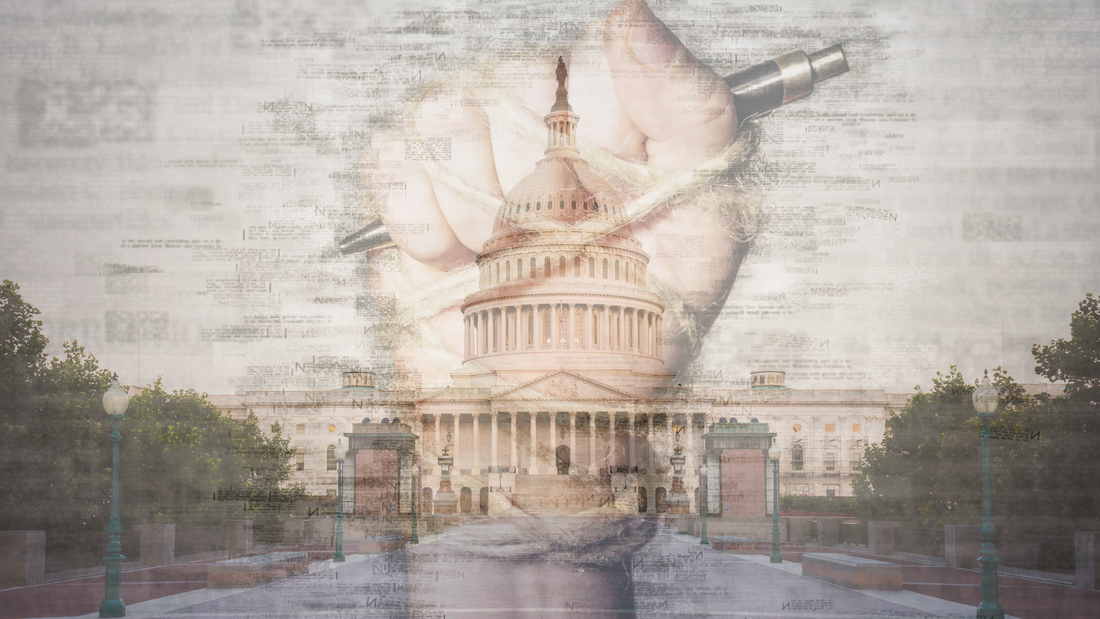

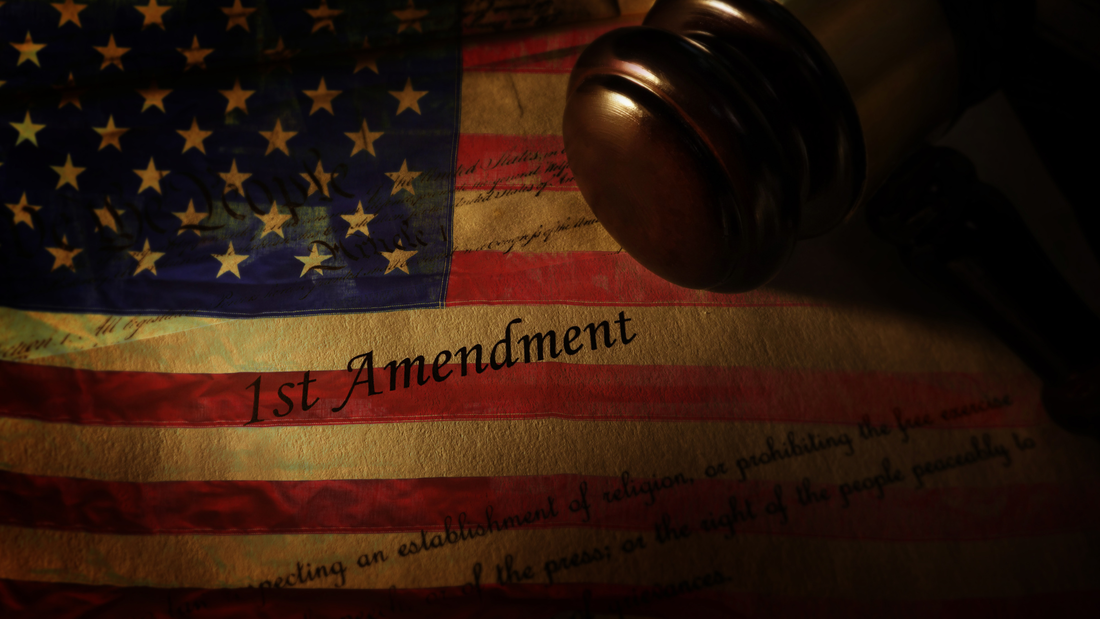


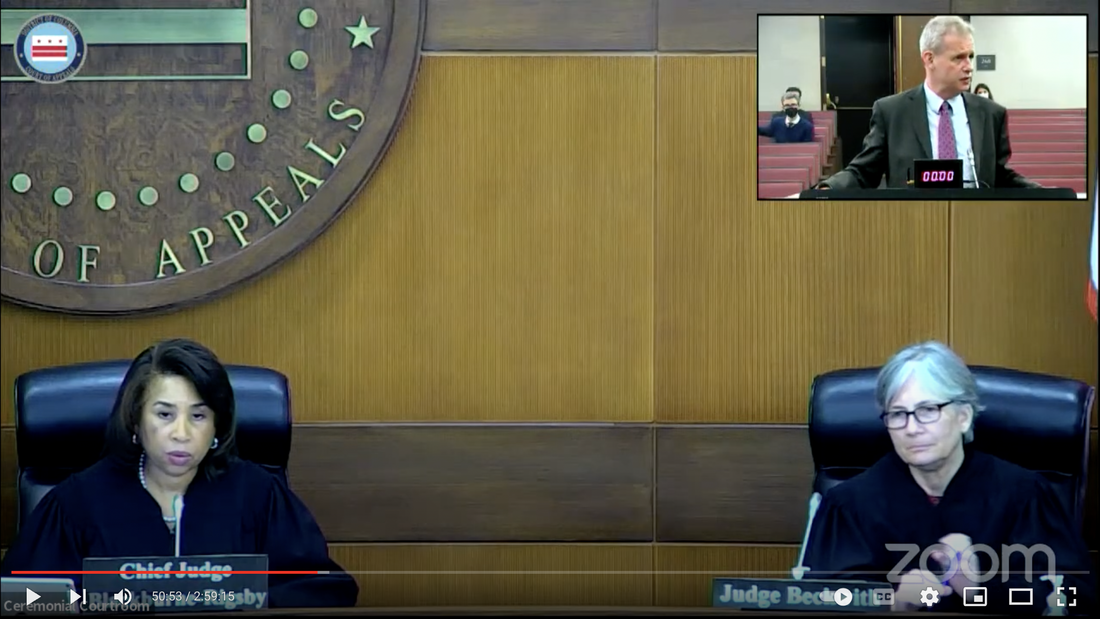

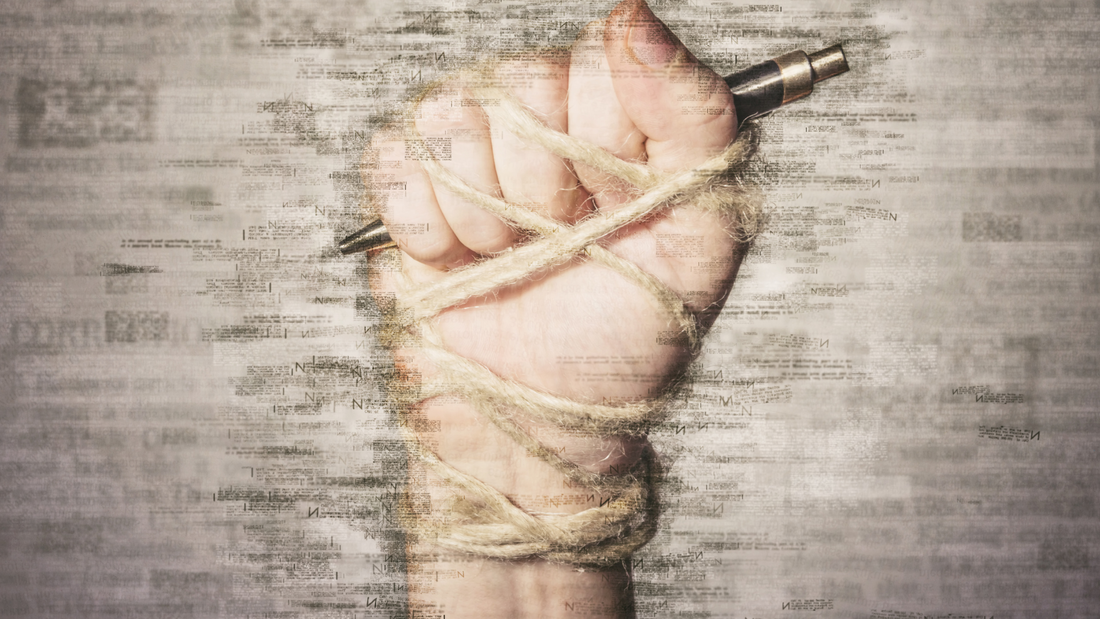

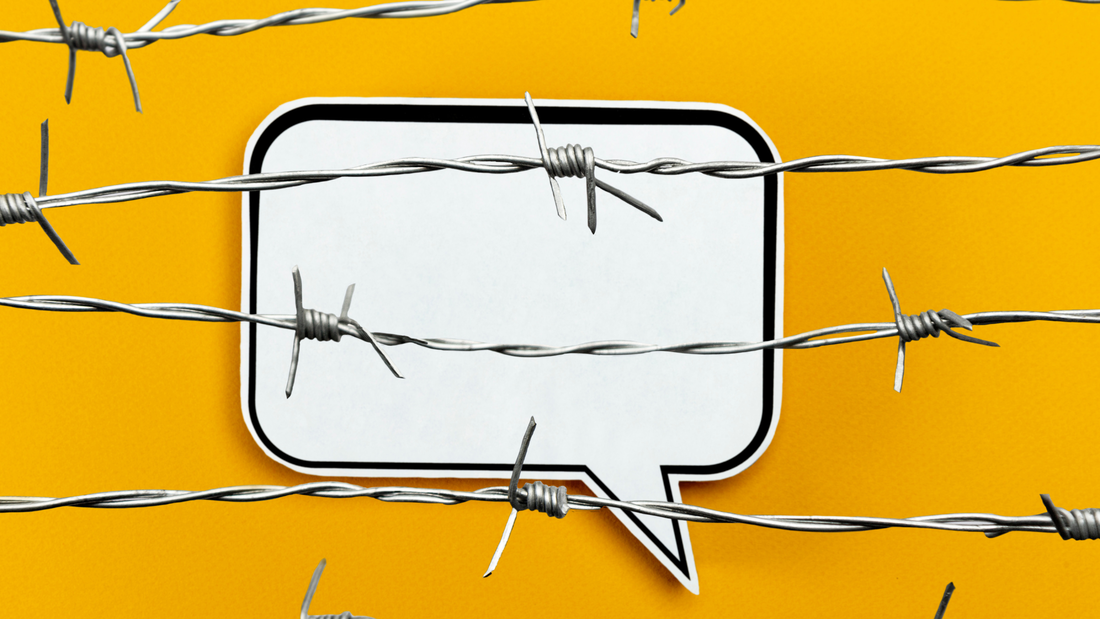
 RSS Feed
RSS Feed